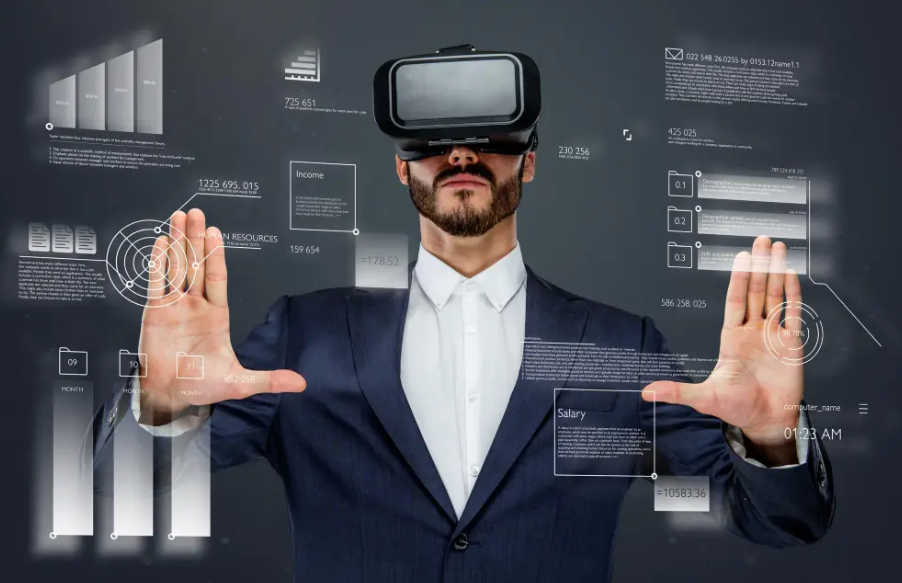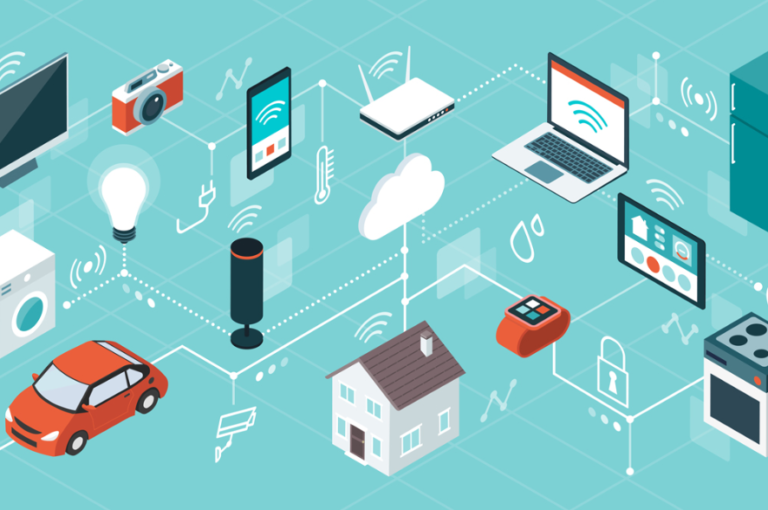10 Emerging Technologies That Will Shape the Future
The landscape of technology is evolving rapidly, with ten emerging innovations set to define the future. From artificial intelligence to quantum computing, these advancements promise to enhance efficiency and sustainability across various sectors. Each technology presents unique challenges and opportunities for society. Understanding their potential impact is crucial. What might the integration of these technologies mean for industries and everyday life? The answers could redefine the human experience in profound ways.
Artificial Intelligence and Machine Learning
As technology advances, the roles of artificial intelligence (AI) and machine learning (ML) become increasingly pivotal across various sectors.
Natural language processing enables machines to understand and interact using human language, enhancing user experiences.
Meanwhile, predictive analytics harnesses data to forecast trends, empowering organizations to make informed decisions.
Together, these technologies foster innovation, drive efficiency, and promote autonomy in an increasingly complex world.
See also: 3D Printing: A Game Changer for Healthcare and Design
Quantum Computing
Quantum computing represents a groundbreaking shift in computational capabilities, leveraging the principles of quantum mechanics to perform complex calculations at unprecedented speeds.
This technology aims for quantum supremacy, where quantum computers outperform classical counterparts.
The development of advanced quantum algorithms facilitates this transition, unlocking solutions to problems previously deemed unsolvable.
As quantum computing evolves, it promises to redefine industries and enhance technological freedom.
Biotechnology and Genetic Engineering
Biotechnology and genetic engineering are revolutionizing the landscape of medicine, agriculture, and environmental science by harnessing biological processes for innovative solutions.
CRISPR applications and synthetic biology enhance gene therapy and personalized medicine, while agricultural biotechnology and microbial engineering address food security.
Bioinformatics advancements drive biopharmaceutical innovations, yet ethical considerations remain crucial in navigating the implications of these powerful technologies within society and the environment.
Renewable Energy Technologies
While the world grapples with the pressing challenges of climate change and energy sustainability, renewable energy technologies are emerging as pivotal solutions that promise to reshape the global energy landscape.
Innovations in solar energy, wind power, and geothermal systems, alongside advancements in energy storage and bioenergy solutions, are enhancing energy efficiency.
Moreover, smart grids and hydropower advancements contribute to a sustainable future, complemented by carbon capture and sustainable materials.
Internet of Things (IoT)
The Internet of Things (IoT) is revolutionizing how individuals and industries interact with technology, enabling smart home innovations that enhance convenience and efficiency.
In industrial settings, IoT applications optimize operations and improve productivity through real-time monitoring and automation.
However, as connectivity increases, ensuring enhanced data security becomes critical to protect sensitive information from potential threats.
Smart Home Innovations
As technology continues to evolve, smart home innovations driven by the Internet of Things (IoT) are transforming everyday living spaces into interconnected ecosystems.
Smart appliances, voice control, and smart sensors enhance energy management and climate control, while advanced security systems and home automation increase safety and convenience.
Connected devices and home robotics offer unprecedented flexibility, creating environments that cater to individual lifestyles and preferences.
Industrial IoT Applications
Industrial IoT applications are revolutionizing the manufacturing landscape by enabling real-time data collection and analysis across various processes.
These technologies facilitate predictive maintenance, asset tracking, and supply chain optimization, driving smart manufacturing initiatives.
With enhanced real-time monitoring, energy management, and process automation, companies benefit from improved equipment interoperability, effective data analytics, and remote diagnostics, ultimately fostering greater operational efficiency and flexibility in a competitive market.
Enhanced Data Security
While the Internet of Things (IoT) continues to expand its influence across various sectors, the need for enhanced data security has become increasingly critical.
Implementing data encryption and robust access control measures protects digital identities from cybersecurity threats.
Compliance with privacy regulations, along with biometric authentication and secure cloud solutions, fosters secure transactions, effective data governance, and enhanced threat intelligence, ensuring a safer IoT ecosystem.
Augmented Reality and Virtual Reality
Augmented Reality (AR) and Virtual Reality (VR) are transforming various sectors by offering immersive experiences that enhance user engagement and learning.
In gaming, these technologies create captivating environments that captivate players, while in professional settings, they provide advanced training simulations that allow individuals to practice skills in a safe and controlled space.
Furthermore, AR and VR are revolutionizing collaboration, enabling teams to interact in virtual environments that break geographic barriers and promote innovative teamwork.
Immersive Gaming Experiences
How have advancements in technology transformed the landscape of gaming?
Immersive gaming experiences leverage augmented and virtual reality to enhance interactive narratives and immersive storytelling. These innovations enable rich sensory experiences, fostering social gaming through multiplayer dynamics and community engagement.
Gamification strategies encourage user generated content, while game design innovations create vibrant worlds that invite players to explore, connect, and redefine their gaming journeys.
Enhanced Training Simulations
The evolution of immersive technologies extends beyond gaming, finding significant applications in training simulations that utilize augmented reality (AR) and virtual reality (VR).
These immersive learning environments revolutionize virtual reality training by enabling users to engage in realistic scenarios. This approach enhances retention and skill acquisition, fostering independence and creativity in learners.
Consequently, organizations can cultivate a more competent workforce prepared for real-world challenges.
Virtual Collaboration Tools
Collaboration has undergone a profound transformation with the advent of virtual collaboration tools that harness the power of augmented reality (AR) and virtual reality (VR).
These technologies facilitate remote teamwork, enabling participants to engage in immersive digital collaboration.
5G and Next-Generation Connectivity
As the demand for faster and more reliable communication continues to grow, advancements in G and next-generation connectivity are poised to revolutionize the way individuals and industries interact.
The ongoing 5G infrastructure development facilitates unparalleled speeds and efficiency, enabling next-gen wireless applications.
These innovations promise to enhance productivity, drive economic growth, and empower users with unprecedented freedom in their connectivity experiences.
Autonomous Vehicles
Autonomous vehicles represent a significant advancement in transportation technology, promising enhanced safety through innovations such as advanced sensors and real-time data processing.
As these vehicles become more integrated into urban environments, they will necessitate substantial changes in infrastructure, including road design and traffic management systems.
The implications of these developments extend beyond mere convenience, posing critical questions about urban planning and public safety.
Safety Innovations in Transport
How can technology redefine safety standards in transportation?
Autonomous vehicles leverage advanced driver assistance systems and innovative vehicle design to enhance accident prevention.
Integrated safety regulations promote effective emergency response and improve traffic management.
Furthermore, infrastructure upgrades play a pivotal role in fostering public awareness and adherence to safety standards.
Ultimately, technology integration fosters a safer, more efficient transportation landscape, empowering freedom of movement.
Impact on Urban Infrastructure
While the rise of autonomous vehicles promises significant advancements in transportation efficiency, it also necessitates a profound transformation of urban infrastructure.
Cities must adopt smart city solutions to integrate these vehicles seamlessly, fostering sustainable urbanization.
This evolution will require rethinking road designs, traffic systems, and parking solutions, ultimately enhancing mobility and reducing congestion, thus empowering citizens with greater freedom and accessibility.
Blockchain and Decentralized Finance
As digital transformation continues to reshape the financial landscape, blockchain technology and decentralized finance (DeFi) emerge as pivotal forces driving innovation and democratization in global markets.
Through smart contracts and decentralized exchanges, cryptocurrency adoption accelerates, fostering financial inclusion.
Tokenized assets enhance blockchain scalability, while digital identity solutions and peer-to-peer lending redefine access.
However, robust regulatory frameworks are essential to balance innovation with protection, including decentralized insurance models.
Space Exploration Technologies
Revolutionizing the boundaries of human knowledge and capability, space exploration technologies have rapidly advanced, opening new frontiers for scientific discovery and commercial opportunities.
Innovations in satellite technology and orbital infrastructure facilitate deep space missions and robotic exploration, paving the way for planetary colonization.
Additionally, developments in space mining, cosmic radiation protection, and astrobiology research promise to enhance interstellar travel and even inspire a burgeoning space tourism industry.
Conclusion
As the dawn of these ten emerging technologies approaches, they stand poised like sentinels at the gates of a transformative era. Each innovation intertwines to forge a tapestry of progress, promising to enhance efficiency and sustainability across various sectors. The fusion of artificial intelligence, quantum computing, and renewable energy, among others, will not only redefine industries but also reshape human interaction with the world. Embracing these advancements will be crucial in navigating the complexities of the future.







